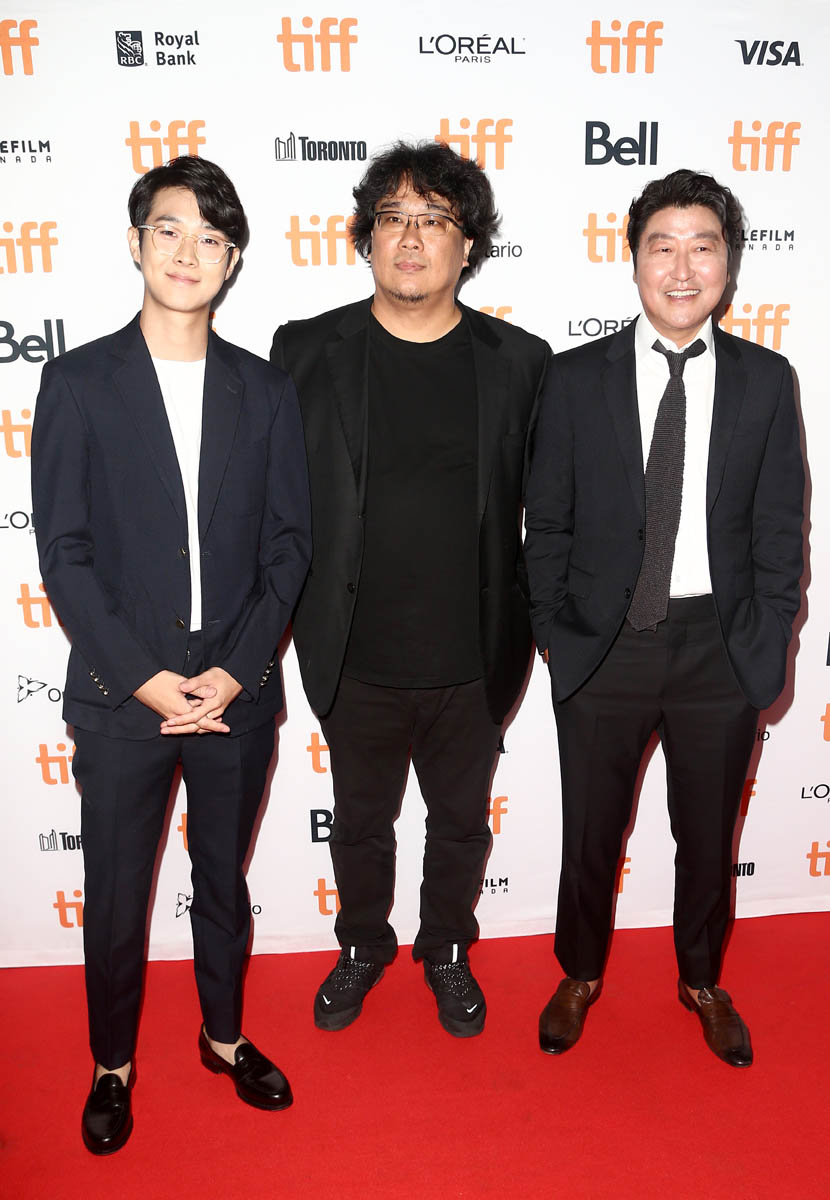Parasite: First Place, Third Place… and Oscar place?



Parasite, the latest film from South Korean director Bong Joon-ho, won the Palme d’Or in Cannes back in May and was just named the second runner-up for the TIFF People’s Choice Award. Between Jojo Rabbit and Parasite, the TIFF crowd broke weird this year, because Parasite is F-CKING BONKERS in the best way possible. It feels like a perfect distillation of the class parables Bong has been telling all decade (building off Snowpiercer and Okja), and it is a very precise, very particular piece of filmmaking. But it’s also completely f-cking batsh-t insane, the kind of movie that starts at sixty miles an hour and does not tap the brakes even once—I’m not sure this metaphorical car even HAS brakes. Parasite is far stranger than I expected, and I am well versed in the kind of weird sh-t Bong Joon-ho makes.
The story revolves around two families: the wealthy, upper-class Park family, and the impoverished, unemployed Kim clan. Longtime Bong collaborator Song Kang-ho stars as the Kim patriarch, Kim Ki-taek. His family does what they can to survive, crowding into one corner of the bathroom to skim wi-fi from a coffee shop, and folding thousands of pizza boxes for change. They don’t seem like bad people, just desperate for a break. That break comes through their son, Kim Ki-woo (Choi Woo-sik, who rolled into TIFF with rockstar energy), who is asked by a friend to take over tutoring the Park’s daughter, Da-hye (Jung Ji-so), in English. The first half of the movie is concerned with the merging of the Kim and Park families, and for this portion of the film, Parasite is a funny observational comedy. Then it takes a hard left into crazy town, and Parasite becomes a brilliant parable about class, the indelible societal markers we carry, and the impossible impasse of upward mobility.
Bong cut his teeth on comedy and horror, so though Parasite is neither a comedy nor a horror movie, it has elements of both that elevate the film into the kind of genre-bending masterclass few filmmakers can really accomplish. There is an especially good bit of business utilizing a doorway, which seems to grow darker and more foreboding as the film progresses, looming ever larger in the background as characters navigate around and through it. This is what Bong does so well—every shot matters, every angle is considered, and even the color temperature of negative space is put to work to speak to his story. And even as the film flies off the rails, there are some sequences that rank among the funniest of the year. The comedy in Parasite is dark, for sure, but some of the sight gags are just fantastic.
It’s easy to see why Parasite is garnering so much attention. Not only is it a perfectly calibrated and flawlessly executed film from a much-admired filmmaker, but it also feels completely unique to Bong Joon-ho. No one else could make this film, no one else has Bong’s exact mastery of comedy, drama, and horror, his sense of space and dread. A lot of filmmakers are preoccupied with class, but no one else is as precisely equipped as Bong to make this particular film. It feels like the culmination of his ideas and his technical mastery, workshopped in excellent-in-their-own-right films like Snowpiercer, The Host, and Barking Dogs Never Bite. Bong has been building to this film bit by bit for almost twenty years, and it feels like a film that is that well-considered and thoughtfully assembled. Parasite is one of the best films you’ll see this year, and certainly the most insane.








